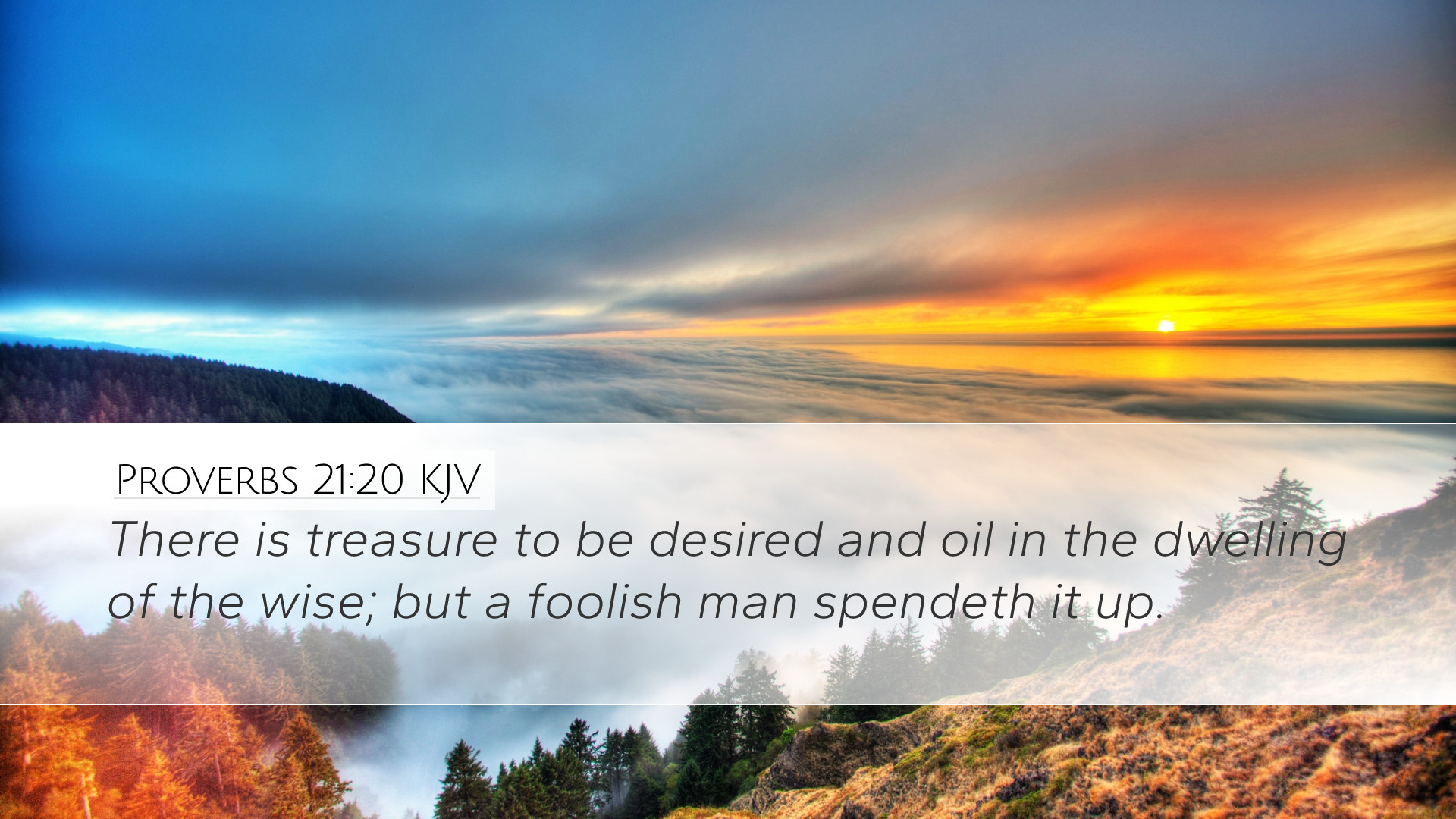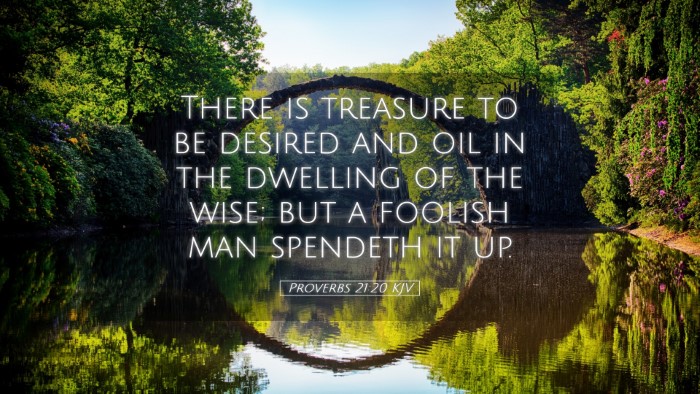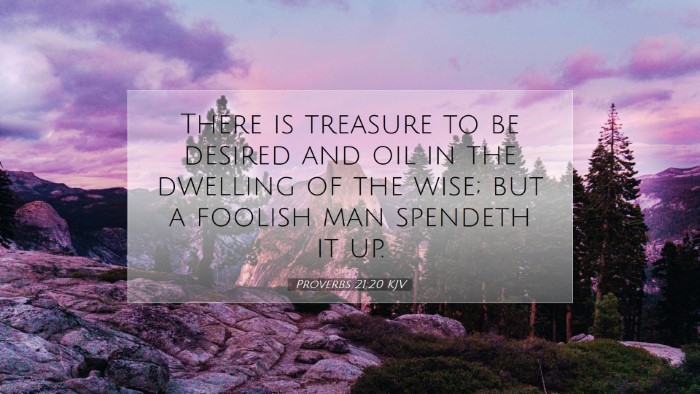Commentary on Proverbs 21:20
Verse Overview: Proverbs 21:20 states, "There is treasure to be desired and oil in the dwelling of the wise; but a foolish man spendeth it up." This verse contrasts the behaviors of the wise and the foolish, emphasizing the importance of prudent management of resources.
Contextual Analysis
This proverb is part of a larger collection of sayings attributed to Solomon, aimed at imparting wisdom for daily living. The verses surrounding this text often focus on morality, the consequences of one's actions, and the rewards of wise decision-making.
Insights from Commentaries
Matthew Henry's Commentary
Matthew Henry stresses the significance of wisdom in managing one's household. He notes that the wise person possesses "treasures," which may refer to both material wealth and intangible resources such as knowledge and experience. The inclusion of "oil" symbolizes both prosperity and the practical use of resources. In biblical times, oil was not only valuable for cooking but also for lighting homes. Therefore, wise individuals know how to preserve and utilize their assets efficiently.
Henry highlights that the foolish individual is characterized by wastefulness. Such a person squanders what could have been saved or used for future needs, demonstrating a lack of foresight. The lesson for readers is to cultivate wisdom that leads to prudent financial and personal management.
Albert Barnes' Notes on the Bible
Albert Barnes elaborates on the metaphor of "treasure" and "oil," suggesting these terms encompass the broader category of resources one may possess. He interprets "treasures" as not just physical riches but also wisdom and understanding that lead to a fulfilling life. For Barnes, the "dwelling of the wise" suggests a household governed by principles of wisdom that naturally attracts blessings.
In contrast, Barnes points out that the "foolish man" represents individuals who lack prudence. To "spend it up" implies a hasty and careless approach to life that ultimately leads to loss. Barnes urges the readers to seek wisdom from God, which can yield lasting treasures and stability in their lives.
Adam Clarke's Commentary
Adam Clarke brings a theological perspective to the passage, noting that true wisdom is a gift from God. He cites that the wise individual not only understands the value of their resources but also cultivates a lifestyle that honors God with their provisions. Clarke emphasizes that the reference to “oil” speaks to the blessings that come from a life aligned with divine principles.
Clarke warns against the folly of the man who squanders his blessings. Such a wasteful lifestyle reflects a deeper spiritual depravity. Clarke encourages readers to invest in the eternal by making wise choices, thereby storing up "treasures" that have both immediate and eternal significance.
Practical Applications
- Cultivate Wisdom: Seek wisdom through prayer and scripture study, recognizing that God is the source of true understanding.
- Manage Resources Prudently: Reflect on how both material and spiritual resources are allocated. Are we being good stewards?
- Foster Gratitude: Acknowledge the resources and blessings in your life. Wise living begins with gratitude for what you have.
- Avoid Wastefulness: Reflect on areas of your life where resources are squandered, whether that be time, money, or relationships.
Theological Reflections
This verse serves as a reminder of the biblical principle of stewardship. In the context of Christian teaching, it echoes the New Testament's emphasis on investment in the Kingdom of God. Just as the wise manage their resources with an eye toward eternity, so too are believers called to utilize their gifts for God’s glory.
The contrast between the wise and the foolish can also be reflected in the parable of the talents (Matthew 25:14-30), where the faithful servants are rewarded for their wise management of their master’s resources. Thus, Proverbs 21:20 aligns well within the broader biblical narrative of accountability and the judicious use of God-given resources.
Conclusion
Proverbs 21:20 encapsulates two distinct lifestyles: that of the wise, who are prudent and resourceful, and that of the foolish, who are wasteful and careless. For pastors, students, theologians, and scholars, this verse serves as a profound meditation on the nature of wisdom and the importance of stewardship in every aspect of life. Engaging with the insights from public domain commentaries encourages a deeper exploration of one's own management of resources in light of scriptural wisdom.


